Drone experts rule out US government experiment, unsure of other New Jersey drone phenomenon theories
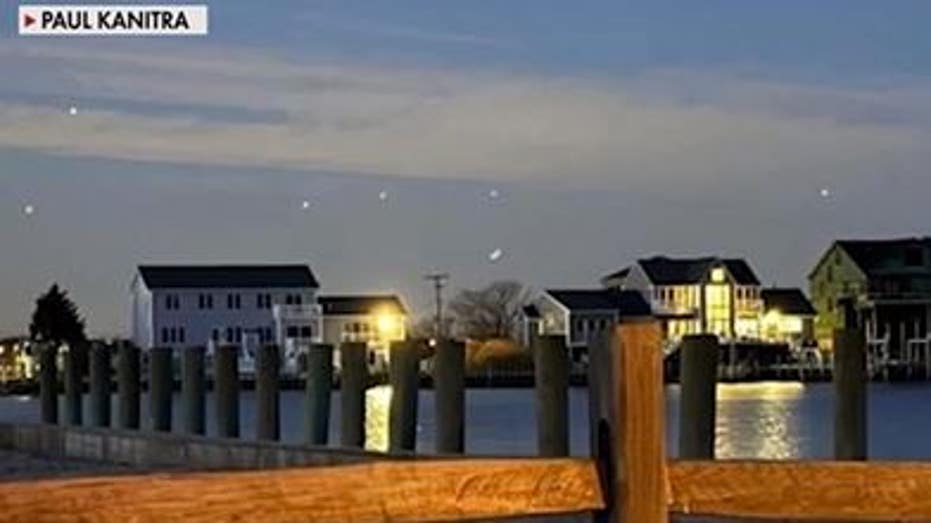
Drone experts have little idea what the dozens of drone sightings over New Jersey could be, but have ruled out the possibility that they might be the work of a classified government program. They say the lack of a clear image or any residual hardware makes it difficult to make any guesses. “Until something is found, it’s really difficult to say,” said Brett Velicovich, Fox News contributor and CEO of Expert Drones. “We haven’t seen any clear images.” The drone sightings were first reported nearly a month ago – on Nov. 18 – and have been spotted every night from about dusk until around 11 p.m. The drones are “six feet in diameter,” fly in a coordinated way with their lights off and “appear to avoid detection by traditional methods,” according to New Jersey state Rep. Dawn Fantasia, who relayed a briefing given by law enforcement. Reports have ranged from four to 180 sightings per night, throughout New Jersey, New York, Pennsylvania and Connecticut. With little information on their origin from law enforcement, public speculation has run wild. Velicovich poured cold water on the idea that the drones could be part of a classified government test – one theory circulated to explain the lack of information shared with the public. “I find it hard to believe,” said Velicovich. “Maybe it started that way, and now people think everything they see is a drone . . . . I’ve seen a lot of images that look like planes. But he said that when he worked on classified drone projects, the protocol was always to inform local police. MORE THAN 20 DAYS INTO PHENOMENON, PENTAGON STILL HAS NO ANSWERS ABOUT ORIGINS OF MYSTERIOUS NJ DRONES “There’s a reason why we test stuff in Area 51 or all these remote locations, so that you don’t have to cause public hysteria. And then when we would test stuff in cities, we would always, whenever we do secret exercises in cities, we would always inform the local police.” Stacie Pettyjohn, drone expert with the Center for New American Security, agreed. “They would be doing it on a military base or a testing facility. And you know, they’re not overflying sort of sensitive industrial locations, like they have been in New Jersey.” Both experts agreed that what could have started off as drones may now have developed into a public panic, where everything in the air is assumed to be a drone. They said it could also be photographic drones looking to pick up images of the drone phenomenon, adding to the panic. “People are gonna start to see what they expect to see,” said Pettyjohn. “No one has shown me a clear photograph of a drone,” said Velicovich. “Either it’s just overblown right now, and everything in the air is a drone, or, you’ve got a lot of planes in the area that are probably trying to pick up, take photographs and detect stuff and see what’s really going on.” The FBI, in a statement, suggested that many of the drone sightings had turned out to be planes. “We have no evidence at this time that the reported drone sightings pose a national security or public safety threat or have a foreign nexus,” a joint FBI and Department of Homeland Security statement said Thursday. “We are supporting local law enforcement in New Jersey with numerous detection methods but have not corroborated any of the reported visual sightings with electronic detection. To the contrary, upon review of available imagery, it appears that many of the reported sightings are actually manned aircraft, operating lawfully. There are no reported or confirmed drone sightings in any restricted airspace.” NEW JERSEY DRONE SIGHTINGS: MILITARY ANALYSTS BREAK DOWN NATIONAL SECURITY CONCERNS, DOUBT HOBBYISTS AT PLAY The FBI revealed this week its budget for counter-drone technology is a mere $500,000 per year. Earlier this week, Rep. Jeff Van Drew, R-N.J., said that the drones may be linked to an Iranian “mothership,” a theory that prompted the Pentagon to say that it had seen no evidence the drones could have come from a U.S. adversary. Velicovich said he “isn’t sold” that the drones are foreign in origin, but U.S. adversaries would have the capability to be behind the occurrences. “If we go with the theory that it’s foreign, China, Russia, Iran, they all have systems that can travel over large amounts of terrain, over oceans and and carry other drones with it. So that’s not the difficult thing that’s happening every single day right now in countries like Ukraine.” Pettyjohn assumed that the drones would need to be operated by someone within the U.S. “I would assume that it’s someone who’s here locally, which may be a spy, which may be a nefarious actor, but that they’re they’re individuals on the ground, and it’s just easier to blend in and difficult to identify who they are and where they are with these rather innocuous systems,” she said. “They can be in the air probably on the order of, like, five hours or so, or less, and a lot of them, it’s way less than that. And that just means that they have to be someone probably physically here, [who] is flying them.” China expert Gordon Chang mused that the drones could be an adversary merely looking to offer a form of distraction. If it were intended as an attack, “you wouldn’t put on this big display over the course of days . . . with these very large objects and flashing lights. You’re not going to advertise a drone attack on the U.S.,” Chang said. “I think that they’re trying to attract our attention, distract us from something that’s happening elsewhere,” he said. “So, I worry about what is going on that we’re not paying attention to because of the drones.”
Climate justice group has deep ties to judges, experts involved in litigation amid claims of impartiality
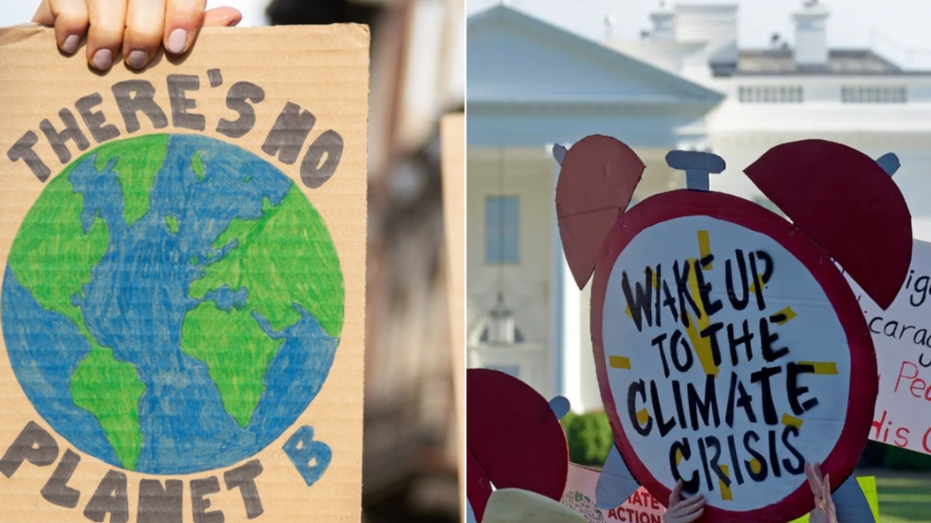
FIRST ON FOX: A controversial judicial advocacy organization funded by left-wing nonprofits continues to work with judges and experts involved in climate change litigation despite publicly downplaying the extent of those connections. “CJP doesn’t participate in litigation, support or coordinate with any parties in litigation, or advise judges on how they should rule in any case,” the Environmental Law Institute Climate Judiciary Project President Jordan Diamond wrote in a recent letter to The Wall Street Journal in response to criticism of the project. The Washington, D.C.-based Environmental Law Institute (ELI) created the Climate Judiciary Project (CJP) in 2018, establishing a first-of-its-kind resource to provide “reliable, up-to-date information” about climate change litigation, according to the group. The project’s reach has extended to various state and federal courts, including powerful appellate courts, and comes as various cities and states pursue high-profile litigation against the oil industry. A Fox News Digital review shows that several CJP expert lawyers and judges have close ties to the curriculum and are deeply involved in climate litigation. DARK MONEY FUND POURED MILLIONS OF DOLLARS INTO ECO ACTIVIST GROUPS BLOCKING HIGHWAYS, DESTROYING FAMOUS ART Princeton University professor Michael Oppenheimer contributed to the CJP curriculum and presented “Evidence of Change: Judging Climate Litigation” with CJP’s Sandra Nichols Thiam at the 2022 Ninth Circuit Judicial Conference July 20, 2022. Oppenheimer has a long history of filing climate-related amicus briefs from 2019-2022 in litigation across several states. Robin Kundis Craig, a professor at the University of Utah’s Law School, wrote a module for CJP in 2022 and has also filed several amicus briefs showing she is active in court cases. One example occurred in 2023, when Craig is listed on an order granting legal scholars’ request to file amicus, which was signed by Justice Mark Recktenwald, who, Fox News Digital previously reported, quietly disclosed last year that he presented for an April course in collaboration with the Environmental Law Institute Climate Judiciary Project. Recktenwald co-presented at a December 2022 National Judicial College webinar sponsored by CJP, “Hurricanes in a Changing Climate and Related Litigation.” In 2023, he co-presented with Professor Robert DeConto at a National Judicial College seminar, “Rising Seas and Litigation: What Judges Need to Know about Warming-Driven Sea-Level Rise.” RADICAL CLIMATE ACTIVIST ENDORSES BLOWING UP PIPELINES IN STARTLING INTERVIEW, ADMITS PEOPLE COULD BE KILLED In October 2023, Recktenwald’s Hawaii Supreme Court denied an appeal from oil companies to toss a Honolulu climate misinformation suit. Craig also filed an amicus in Hawaii state court in July 2022, where an order was signed by Judge Jeffrey Crabtree allowing the brief to be filed. Crabtree is a member of the National Judicial College Curriculum Development Committee, which creates curricula for “Environmental Law Essential for the Judiciary.” “Don’t underestimate the importance of the role of state court judges in environmental law,” the curriculum’s website states. Ann Carlson, who joined the Biden administration in 2021, served on ELI’s board of directors for years while also “providing pro bono consulting” for Sher Edling, an eco law firm representing a number of jurisdictions, on litigation against oil companies, financial disclosures showed. Sher Edling counsel Michael Burger has also participated in multiple ELI events, and former Sher Edling lawyer Meredith Wilensky was previously an ELI Public Interest Law Fellow. BIDEN ADMIN REPORT COULD SLOW TRUMP’S EFFORTS TO UNLEASH DOMESTIC NATURAL GAS, EXPERTS SAY Burger is the executive director of the Sabin Center for Climate Change Law and an ELI presenter who has filed amicus briefs in support of plaintiffs in climate cases across the United States. UCLA’s Emmett Institute on Climate Change and the Environment hosted a talk in October 2017 with Sher Edling’s Vic Sher, “Suing Over Climate Change Damages: The First Wave of Climate Lawsuits.” Ann Carlson was the moderator for that discussion. John Dernbach, listed as an expert on CJP’s website, filed an amicus brief in 2019 as part of a brief of legal scholars in support of plaintiffs in City of Oakland v BP. “Judges attending Climate Judiciary Project events are advised that they are walking into a left-wing lobbying shop,” American Energy Institute President Jason Isaac told Fox News Digital. “Under the guise of ‘judicial education,’ CJP uses activist academics to give a pro-plaintiff sneak peek at climate change lawsuits. This kind of politicking underlines that the climate change lawsuits themselves are a left-wing attack on our quality of life. “The Supreme Court will have an opportunity early next year to hear a case asking whether blue states and far-left mayors like Brandon Johnson can sue energy providers for climate change. Let us hope the court takes the case and ends Green New Deal lawfare.” Fox News Digital previously reported that since it was founded more than five years ago, the project has crafted 13 curriculum modules and hosted 42 events, and more than 1,700 judges have participated in its activities. And multiple judges serve as advisers at CJP, potentially having an impact on its curriculum and modules. “So-called ‘climate change lawsuits,’ lawsuits claiming that private companies should be monetarily liable for damage to public infrastructure allegedly caused by climate change, have exploded in the past five years,” GOP Sen. Ted Cruz wrote in a letter to Environmental Law Institute earlier this year. “In tandem with this unprecedented litigation, the Environmental Law Institute (ELI) launched a ‘first-of-its-kind effort’ to provide judges with ‘education on climate science, the impacts of climate change, and the ways climate science is arising in the law.’ It appears that ELI’s goal in providing this ‘education,’ however, may be to influence judges to side with plaintiffs in climate change cases.” The letter went on to label Carlson as “one of the program’s architects” and requested “information to allow the Committee to evaluate the efforts of both Ms. Carlson and ELI to influence the federal judiciary in its adjudication of climate litigation.” Cruz alleged that “ELI intends to accomplish via the courts what it cannot get enacted into law: a radical environmental agenda.” “To help judges reach those ‘appropriate’ decisions, the Project developed the ‘Climate Science and Law for Judges Curriculum’ (the Curriculum).
Elon Musk’s election talk sparked concern in swing state, emails reveal

Elon Musk’s claims of voting fraud in the United States presidential election prompted a flurry of concerned correspondence to election officials in a key swing state, newly released emails reveal. The Tesla and SpaceX CEO’s commentary on X prompted a Republican state senator and others in Pennsylvania, the most important battleground state with 19 Electoral College votes, to contact the top election official in one district to discuss concerns about overseas voting, according to the emails, which provide new insight into the billionaire’s behind-the-scenes effect on the vote. The office of Senator Chris Gebhard in October contacted the director of elections for Lebanon County, a heavily Republican district located northwest of Philadelphia, to express the lawmaker’s “concerns with what is being communicated” about the November 5 election, the emails show. “Can you help us out by giving us a statement? I dropped off one of the emails,” Daniel Bost, an aide to Gebhard, wrote in an October 10 email to Sean Drasher. Advertisement Bost provided Drasher with a “printout” of an X post by Musk by way of illustrating the senator’s concerns, according to an email Drasher sent to a state-level election official seeking advice on how to respond to the lawmaker. Though it is not clear which of Musk’s posts the officials were referring to, Drasher said in his email to Jonathan Marks, Pennsylvania’s deputy secretary for elections and commissions, that it detailed “the Blue push to register overseas voters”, referring to the traditional colour of the Democratic Party. Al Jazeera obtained the emails through a records request submitted under Pennsylvania’s Right-to-Know Law. False claims In the run-up to the election, Musk, one of US President-elect Donald Trump’s most powerful allies, posted prolifically on X about the supposed risks of voter fraud. Many of those posts included false or unsubstantiated claims, such as hundreds of thousands of migrants had been flown to swing states and put on a fast-track to citizenship as part of a plan to give Democrats an electoral advantage. Although not involving Musk, Republicans filed lawsuits in multiple states, including Pennsylvania, casting doubt on the security of overseas voting in the weeks before the vote. In late October, a federal judge dismissed a lawsuit, in which six Republican state lawmakers in Pennsylvania called for new checks to confirm the identities of voters overseas, ruling that the lawmakers had no justifiable reason for making their claim so close to the election and had relied on “hypothetical concerns”. Advertisement Trump also singled out overseas voting for criticism during his campaign, falsely claiming that people overseas are sent ballots “without any citizenship check or verification of identity whatsoever”. Concerns about overseas voting The outreach to Drasher prompted by Musk’s social media activity apparently left the election official conflicted about how to respond, in part because of his own concerns about overseas voting, according to the emails. Drasher said that although the “tone and some of the details” of Musk’s posts did not seem credible to him, he himself had “real concerns” about the voter registration process. “I don’t feel I can directly address Senator Gehbard [sic] without sounding foolish or uninformed,” Drasher wrote in an October 10 email to Marks. “Ironically I’m now being confronted with something that I also wanted to call out. Could you help me understand? Or, would you be willing to address this with Sen Gebhard yourself and then fill me [in] so I also understand?” Drasher reiterated his concerns about overseas voting registration the following day in an email to his Lebanon County colleagues. “This puts us in a bit of an uncomfortable position because, frankly, I don’t like the UMOVA/UCOVA statutes myself,” he wrote, referring to legislation that facilitates overseas and military absentee voting. “I want to see them changed. And in my opinion, some of the things you see out on Twitter end up being completely valid concerns. I take comfort in the fact that this affects a tiny number of voters; And in our County its [sic] barely statistically relevant.” Advertisement Drasher said that given the attention elected officials were paying to the issue, it would be “only a matter of hours before we start getting calls from constituents who will also be looking for answers”. “I will bow to our excellent solicitor on this, but my own feedback is once again: We can only follow the law as written and we will happily enforce any changes as soon as the Legislature moves on them,” he wrote. When contacted by Al Jazeera, Drasher said he could not remember the exact X post that had prompted the discussions in his office. Asked to elaborate on his concerns about overseas voting, Drasher said it was his job to be concerned about “all” aspects of voter registration. “My concern is that I need to more fully understand the process and rationale behind its structure,” he said. Requests sent to X seeking Musk’s comment did not receive a response. The Pennsylvania Department of State did not follow up on requests for comment. About 4.4 million US citizens were living abroad in 2022, about 2.8 million of whom were voting age, according to the Federal Voting Assistance Program. Research shows voter fraud to be extremely rare in the US. An Associated Press review of every case of potential voter fraud in six battleground states in 2020 identified 475 cases out of more than 25 million ballots cast. Adblock test (Why?)
Dutch court rejects bid to halt arms exports to Israel as Gaza war rages
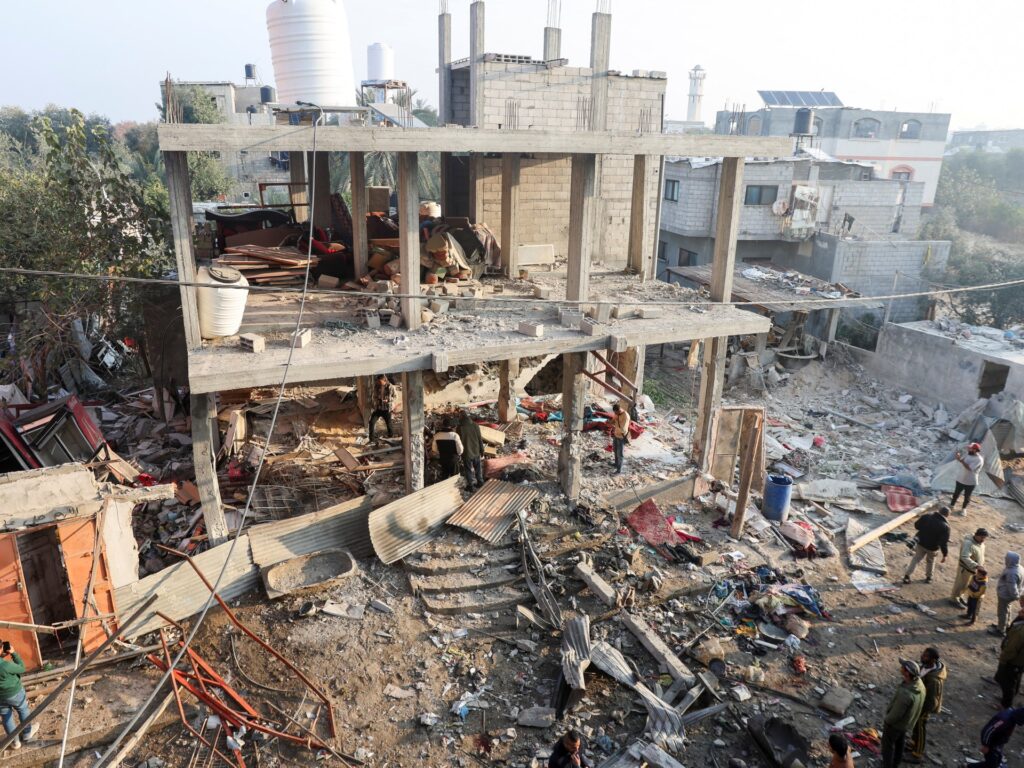
Court says ‘all claims dismissed’ after rights groups file lawsuit to stop arms sales, citing genocide convention. A Dutch court has rejected a bid by 10 pro-Palestinian NGOs to stop the Netherlands from exporting weapons to Israel and trading with illegal Israeli settlements in the occupied Palestinian territory. The Hague district court stressed on Friday that the state has some leeway in its policies and courts should not rush to step in. “The interim relief court finds that there is no reason to impose a total ban on the export of military and dual-use goods on the state,” it said in a statement. “All claims are dismissed.” The plaintiffs, citing high civilian casualties in Israel’s assault in the besieged Gaza Strip, had argued that the Dutch state, as a signatory to the 1948 Genocide Convention, has a duty to take all reasonable measures at its disposal to prevent genocide. “Israel is guilty of genocide and apartheid” and “is using Dutch weapons to wage war”, said Wout Albers, a lawyer representing the NGOs, during the hearings. The NGOs cited a January order to Israel by the International Court of Justice (ICJ) to prevent acts of genocide in Gaza. The UN’s top court said it was plausible Palestinians were being deprived of some rights protected under the Genocide Convention. Advertisement The coalition said it will review the court’s ruling and is considering an appeal. Shawan Jabarin, the general director of Al-Haq, described the decision as an “abominable injustice”. “The Netherlands has abandoned the most basic rules of international law, to prevent colonisation, annexation, apartheid and genocide,” he said. The decision in The Hague came a day after an Israeli air strike hit a residential building in the Nuseirat refugee camp Gaza on Thursday, killing at least 40 Palestinians and wounding dozens more, according to medics. Last month, the International Criminal Court issued arrest warrants for Israeli Prime Minister Benjamin Netanyahu, his former defence minister, and Hamas’s military chief, accusing them of crimes against humanity in connection with Israel’s war on Gaza. The warrants said there was a reason to believe that Netanyahu and former Defence Minister Yoav Gallant had used “starvation as a method of warfare” by severely restricting humanitarian aid and had intentionally targeted civilians in Israel’s assault in Gaza. Earlier this week, the United Nations said humanitarian aid to north Gaza, where famine is looming, has largely been blocked for the past 66 days since Israeli forces launched a renewed ground offensive there, leaving between 65,000 and 75,000 Palestinians without access to food, water, electricity or healthcare. Israel’s offensive has killed at least 44,805 people in Gaza since October last year, a majority of them women and children, according to figures from Gaza’s Health Ministry. Advertisement Earlier this month, Amnesty International accused Israel of “committing genocide” against Palestinians in Gaza since the start of the war last year. Israel has rejected the allegations. Adblock test (Why?)
UN human rights office resumes activities in Venezuela despite Maduro clash
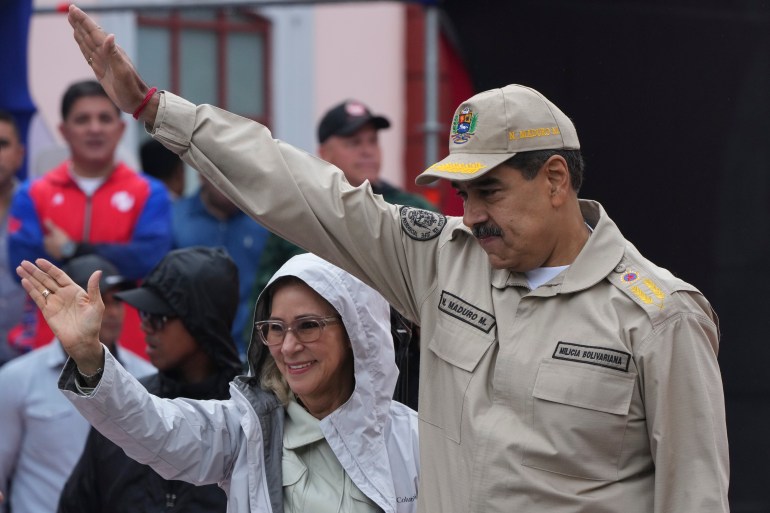
The United Nations High Commissioner for Human Rights has announced that his office is starting to resume its activities in Venezuela, despite past clashes with the government of President Nicolas Maduro. High Commissioner Volker Turk made the announcement on Friday at a meeting with the UN Human Rights Council, where he reiterated his concerns about conditions in Venezuela, particularly after its most recent presidential race. “My office has begun to resume its operations in the country in recent weeks. My hope is that we will be able to restore our full presence,” Turk said in his opening remarks, pitching his organisation as a “bridge-builder”. The UN human rights office had previously established a presence in the country in 2019. But that changed in February, when Maduro’s administration accused the office of plotting with opposition members to undermine the government — an allegation made without proof. Its local office was ordered to close immediately, and its members were told to leave the country within 72 hours. President Nicolas Maduro and First Lady Cilia Flores wave to supporters during an event in Caracas, Venezuela, on December 10 [Ariana Cubillos/AP Photo] In a statement at the time, Venezuelan Foreign Affairs Minister Yvan Gil Pinto accused the UN human rights office of becoming a “colonialist” and “improper” presence in the country, stirring up unrest. Advertisement “Far from showing it as an impartial entity”, Gil Pinto said the office’s actions have “led it to become the private law firm of coup plotters and terrorist groups that permanently conspire against the country”. The Maduro government, however, has long faced condemnation for its human rights record, which includes allegations of arbitrary arrests, torture and extrajudicial killings. Shortly before the human rights office in Venezuela was ordered to be closed, UN officials had expressed concern about the sudden detention of human rights lawyer Rocio San Miguel. In a social media post about her arrest, the human rights office wrote that “due process guarantees, including right to defence, must be respected”. The shuttering of the local office also coincided with intensifying scrutiny over the fairness of Venezuela’s latest presidential election. Maduro, at the time, was seeking a third term in office, but public opinion polls in the months leading up to the race heavily favoured the opposition. The government disqualified several popular opposition candidates from running, including opposition leader Maria Corina Machado and her subsequent replacement, Professor Corina Yoris. Ultimately, Edmundo Gonzalez, a former diplomat, was picked to lead the opposition ticket. The election was held on July 28. But in the early hours of July 29, shortly after polling stations closed, Venezuela’s electoral authority announced that Maduro had won — though it did not release the paper voting tallies that traditionally accompany the results. Advertisement Critics immediately slammed the announcement as fraudulent and called for transparency in the voting results. The contested election led to protests in the streets of the capital Caracas and other cities, as the opposition published voting documents online that it said proved Maduro’s defeat. An estimated 2,000 people were arrested in the government crackdown that followed, with dozens killed and hundreds injured. In his statement at the UN council on Friday, Turk underscored the human toll of the violence. “Looking back over recent months, I remain deeply concerned by the disproportionate use of force and violence during post-electoral protests in July and August, including by armed individuals supporting the government,” Turk said. “I urge a prompt and effective investigation into at least 28 killings that reportedly included demonstrators, bystanders and members of the armed forces.” Still, in a gesture to the country’s authorities, Turk applauded recent waves of prisoner releases that freed protesters and opposition members detained during the post-election protests. An estimated 225 political prisoners were released under “precautionary measures” — including mandatory court appearances — on November 26, and another 103 were set free on Thursday. “This is an important step,” Turk said. But he nevertheless urged Venezuelan officials to review all the cases of those still detained. People detained during a government crackdown on post-election protests walk out of the Yare 3 prison in San Francisco de Yare, Venezuela, on November 16 [File: Cristian Hernandez/AP Photo] “I urge the release of all those arbitrarily detained, both before and after the presidential election. This includes human rights defenders such as Rocio San Miguel and Javier Tarazona, as well as humanitarian workers,” he said. Advertisement “The continued use of counterterrorism legislation against protesters, including adolescents, and reports of enforced disappearances and ill treatment are deeply troubling.” As part of that alleged ill treatment, Turk indicated detainees struggle with “overcrowded cells” and inadequate supplies of food, water and healthcare. He also called on the Venezuelan government to allow each of the prisoners a fair trial, including access to a lawyer and translators if needed, particularly for Indigenous detainees. Looking ahead to Maduro’s inauguration in January and National Assembly elections later in 2025, Turk reflected on his previous visits to Venezuela. He cast his office’s role in the country as one of cooperation. “It was clear to me then, as it is now, that the society needs to heal; overcome divisions and polarisation; and engage in an inclusive dialogue as an absolute priority,” Turk said. “We stand ready to support the people of the Bolivarian Republic of Venezuela during these difficult times in a spirit of constructive engagement.” Adblock test (Why?)
Dustin Burrows on bipartisanship, school vouchers and why he still thinks he’ll be Texas House speaker
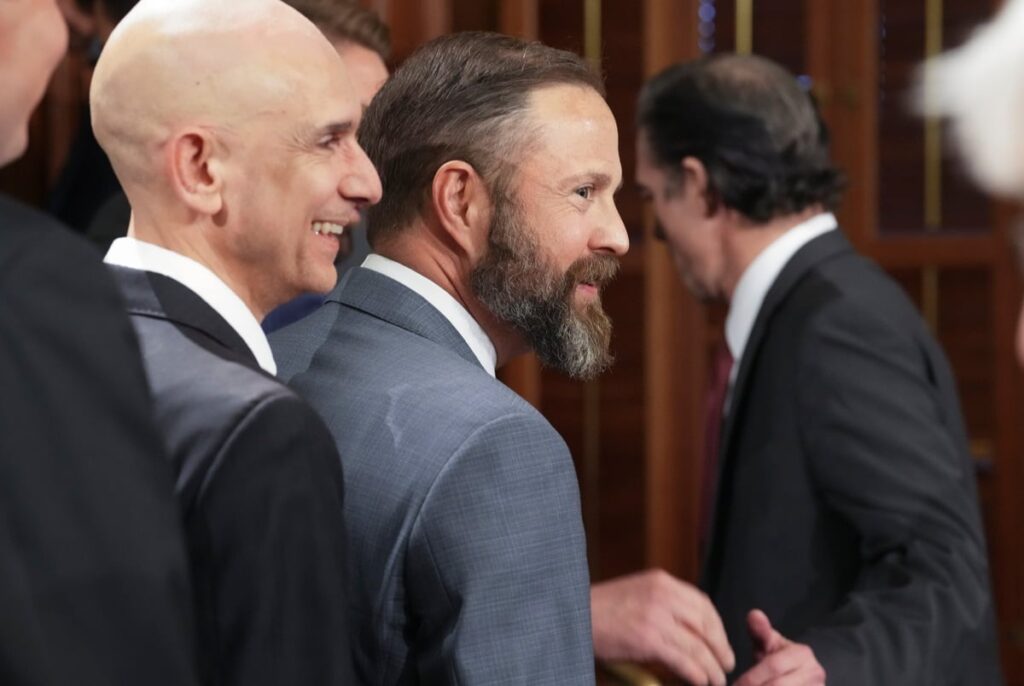
In a Q&A, Burrows said he’s still confident he’ll win. But he says the leadership race is bigger than any one person and his supporters are trying to protect the integrity of the House.
A new Texas GOP rule could alter the House speaker’s race — and ban some Republicans from appearing in primaries
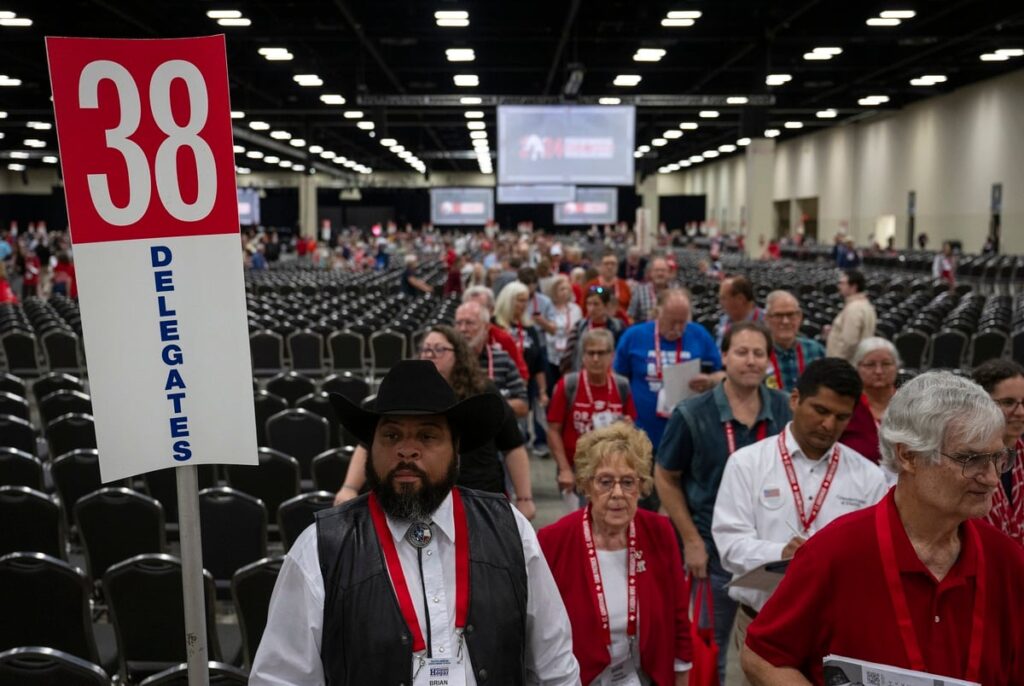
Republicans who vote against party leaders’ preferred candidate could be barred from running in primaries. Lawsuits could follow.
“I’m looking for my uncle” A personal story from Syria
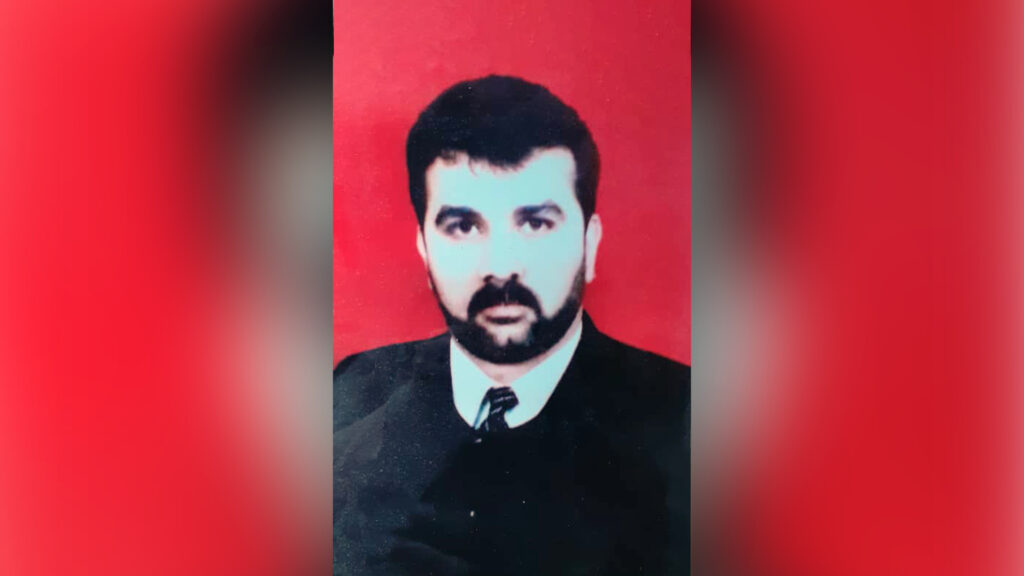
NewsFeed Sarah Kassim is one of many Syrians looking for missing loved ones. She records her search for her uncle, who had been locked away in one of Bashar al-Assad’s prisons. Published On 13 Dec 202413 Dec 2024 Adblock test (Why?)
What does Bashar al-Assad’s fall mean for Syria and the region?

What’s next for Syria? Middle East experts and a former US diplomat join Marc Lamont Hill to unpack the fall of al-Assad. After more than 50 years of the al-Assad’s family reign over Syria, opposition forces, led by Ahmad al-Sharaa, also known as Abu Mohammed al-Julani, launched a swift and unexpected offensive that overthrew President Bashar al-Assad. While al-Assad fled to Russia and has been granted asylum, Syria’s future hangs in the balance. A transitional government has been put in place, but uncertainty over who will ultimately lead the country remains. Will this moment lead to democracy for Syrians after decades of brutality? Will foreign interference and internal conflict undermine a new and independent Syria? This week on UpFront, Marc Lamont Hill talks to former Arabic-language spokesperson for the US State Department Hala Rharrit; founding director of the Middle East and Islamic Studies Program at George Mason University Bassam Haddad; senior fellow at the CATO Institute Mustafa Akyol; and Middle East expert at the Russian International Affairs Council Alexey Khlebnikov. Adblock test (Why?)
McKinsey to pay $650m to settle US opioid consulting probe
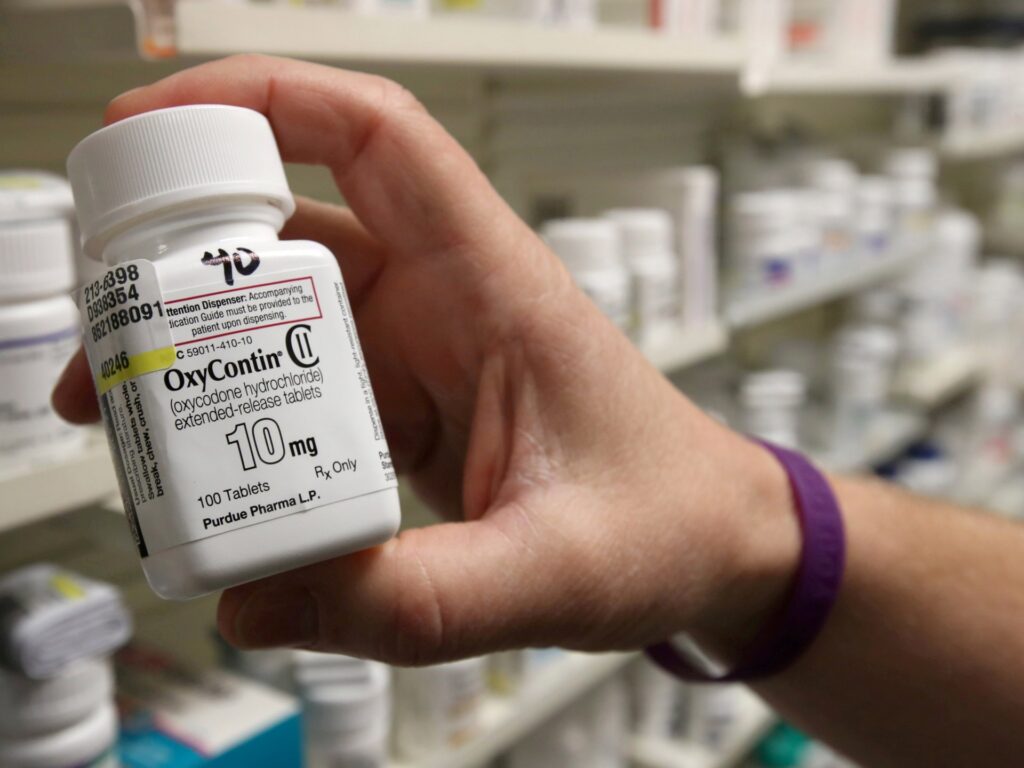
Prosecutors say McKinsey provided Purdue advice on measures it could take to ‘turbocharge’ OxyContin sales. Consulting firm McKinsey & Company has agreed to pay $650m to resolve a United States Department of Justice investigation into the consulting firm’s work advising opioid manufacturer Purdue Pharma on how to boost OxyContin sales. McKinsey has entered into a five-year deferred prosecution agreement filed on Friday in federal court in Abingdon, Virginia, to resolve criminal charges brought as part of a rare corporate prosecution concerning the marketing of addictive painkillers that helped fuel the deadly US opioid epidemic. Prosecutors said McKinsey provided Stamford, Connecticut-based Purdue advice on measures it could take to “turbocharge” OxyContin sales. It was charged with conspiring to misbrand a drug and obstruction of justice. A former senior partner at McKinsey, Martin Elling, has also agreed to plead guilty to obstruction of justice for destroying records related to McKinsey’s work for Purdue, according to court papers. He is scheduled to enter his plea on January 10. Elling deleted documents related to his work for Purdue from his company laptop, sending himself emails to remind himself to do so, according to court papers. Advertisement “We are deeply sorry for our past client service to Purdue Pharma and the actions of a former partner who deleted documents related to his work for that client,” McKinsey said in a statement. “We should have appreciated the harm opioids were causing in our society and we should not have undertaken sales and marketing work for Purdue Pharma. This terrible public health crisis and our past work for opioid manufacturers will always be a source of profound regret for our firm.” A lawyer for Elling declined to comment. McKinsey agreed to pay $650m over five years, improve its compliance practices to detect illegal activity and submit to oversight from the Justice Department and US Department of Health and Human Services (HHS) inspector general’s office as part of the deferred prosecution agreement, the company said. The consulting firm also agreed to resolve a related civil probe regarding alleged violations of the False Claims Act and enter into a “corporate integrity” agreement with the HHS inspector general’s office, the company said. ‘Opioid abatement’ Purdue pleaded guilty in 2020 to criminal charges covering widespread misconduct regarding its handling of prescription painkillers, including conspiring to defraud US officials and pay illegal kickbacks to both doctors and an electronic healthcare records vendor. Purdue is currently involved in court-ordered mediation over a multibillion-dollar settlement reached in bankruptcy proceedings that the US Supreme Court turned aside. Advertisement In a statement on Friday, Purdue said it was working to forge consensus on the plan to “deliver billions of dollars of value for opioid abatement” and create a new company as an “engine for good”. Settlement proceeds also aim to compensate victims, Purdue said. McKinsey previously reached agreements totalling nearly $1bn to settle widespread lawsuits and other legal actions alleging the company helped fuel the opioid epidemic through its work advising Purdue Pharma and other drugmakers. The settlements involved all 50 states; Washington, DC; US territories; local governments; school districts; Native American tribes; and health insurers. In 2019, McKinsey announced it would no longer advise clients on opioid-related businesses. The company has maintained that none of its settlements contains admissions of liability or wrongdoing. Adblock test (Why?)

